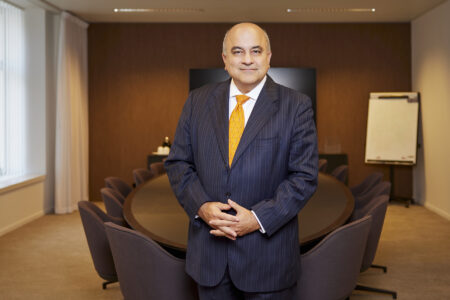 With the demand for electric vehicles on the rise, the auto industry is looking for new, improved batteries that can offer better performance at a lower cost. “The battery alone represents around 30% of the costs of an electric vehicle,” says Rama Ayman, chairman and CEO of Sienza Energy in Europe. “We want to make electric cars accessible for the masses by producing a battery that will last twice as long, charge two times faster and cost around 30% less than those of our competitors.”
With the demand for electric vehicles on the rise, the auto industry is looking for new, improved batteries that can offer better performance at a lower cost. “The battery alone represents around 30% of the costs of an electric vehicle,” says Rama Ayman, chairman and CEO of Sienza Energy in Europe. “We want to make electric cars accessible for the masses by producing a battery that will last twice as long, charge two times faster and cost around 30% less than those of our competitors.”
A spin-off from Caltech (California Institute of Technology), Sienza Energy was founded in 2017 by leading researchers who use nanotechnology to significantly increase the energy and power density of electric vehicle batteries and batteries for consumer electronics. The company has developed a unique, patented 3D architecture that reduces the battery size and weight while enabling a very high active material surface area for coating.
European centre for innovation
As the European market is at the forefront of adopting electric cars, it was logical for Sienza Energy to look for a foothold here. “Luxembourg is highly focused on innovation and technology and very supportive of R&D. It is also perfectly situated: three hours from the main French and German auto makers, and another three hours from the Italian ones,” says Mr Ayman to explain the company’s choice of location for its headquarters. “The fact that we are only a few hours’ drive away from the electric vehicle producers that we are in discussion with is an important advantage, as it makes the testing of our products considerably easier.”
Luxembourg is perfectly situated: three hours from the main French and German auto makers, and another three hours from the Italian ones.
A deciding factor was also when Luxinnovation, the national innovation agency, put Sienza Energy in contact with the Luxembourg Institute of Science and Technology (LIST). The research centre has high-level expertise in the field of nanotechnology, and the company recognised its potential to become an ideal R&D partner. The two organisations are now outlining a possible cooperation aimed at the development of future battery generations and of a pilot production line used to define an industrial manufacturing process. Provided that the necessary financing can be obtained, Sienza’s ambition is to turn Luxembourg into its innovation centre for electric vehicle battery manufacturing.
Sustainable electric vehicle battery innovation
Luxembourg also attracted Sienza Energy’s attention due to its commitment to clean technologies. While the adoption of electric cars is a major step towards cleaner mobility, all aspects of their life cycle need to be aligned to generate significant environmental gains. Sienza is determined to make its batteries sustainable.
“We are researching solutions for avoiding all use of cobalt and harmful solvents,” explains Mr Ayman. “We are also working on the design of the battery to make it fully recyclable. Our objective is to recycle electric vehicle batteries that have been used for 10 years or so and refit them for storing electricity from wind or solar farms. Once they have outlived this second life, we want to maximise the recovery of minerals and materials that could be reused to produce new batteries.”
Production plans
The company is now progressing quickly with the finalisation of the first generation of its electric vehicle batteries. Its potential cooperation with LIST would focus on the development and pilot production of the second generation. “We are still ahead of our competition in terms of the energy and power density of our batteries, which would give electric cars a range of 800 or even 1,000 km,” Mr Ayman points out. “As the whole range of brands are launching into the electric car market, virtually all original equipment manufacturers (OEMs) have a demand for batteries.”
We are still ahead of our competition in terms of the energy and power density of our batteries.
Joost Ortjens, Head of Business Development – Smart Mobility at Luxinnovation has worked with Sienza Energy since its first contacts with Luxembourg and supported them with regional market insights and partnership opportunities. “Sienza has impressed us with its battery-cell performance to date,” he comments. “If the company is successful, it could result in a whole ecosystem with auxiliary industry.”
Photo: © Luxinnovation/Eric Devillet

